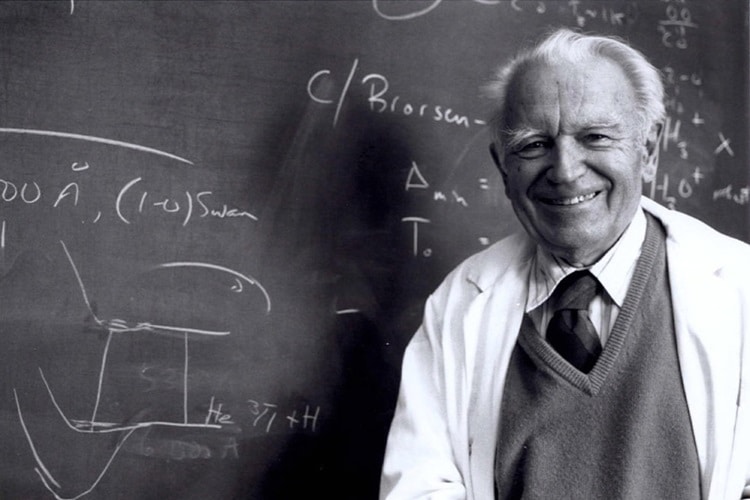Unmasking a Legend: The Story of Gerhard Herzberg

Gerhard Herzberg (25 December 1904 – 3 March 1999) was a German Canadian physicist.
Life and Career
Gerhard Herzberg was born on December 25, 1904, in Hamburg, Germany.
Herzberg earned his Ph.D. in Engineering from the Darmstadt Institute of Technology in 1928. He furthered his studies at the University of Göttingen, where he earned a Ph.D. in Physics in 1930. Herzberg’s academic journey laid the foundation for his future contributions to the field of spectroscopy.
Herzberg began his career as a lecturer at the Darmstadt Institute of Technology. However, due to the rise of the Nazi regime in Germany, he immigrated to Canada in 1935. In Canada, he took up a position at the University of Saskatchewan. His pioneering work in spectroscopy, particularly molecular spectroscopy, gained him recognition.
During his career, Herzberg made significant contributions to the understanding of electronic structure and geometry of molecules. He developed innovative methods for studying molecular spectra, providing valuable insights into the nature of chemical bonding. His research had practical applications in various fields, including atmospheric chemistry and astrophysics.
Herzberg became a naturalized Canadian citizen and held various academic positions, including Professor of Physics at the University of Saskatchewan and later at the University of Chicago. He was also associated with the National Research Council of Canada (NRC) for many years.
He passed away on March 3, 1999, in Ottawa, Canada, at the age of 94.
Award and Legacy
Gerhard Herzberg received numerous awards and honors throughout his distinguished career, with the most prestigious being the Nobel Prize in Chemistry in 1971. The Nobel Committee recognized him “for his contributions to the knowledge of electronic structure and geometry of molecules, particularly free radicals.” This award highlighted Herzberg’s groundbreaking work in molecular spectroscopy, which significantly advanced the understanding of the fundamental principles governing chemical reactions.
In addition to the Nobel Prize, Herzberg received several other notable awards, including the Henry Marshall Tory Medal (1947), the Royal Society of Canada’s Flavelle Medal (1951), the Copley Medal from the Royal Society of London (1976), and the Order of Merit of the Federal Republic of Germany (1980).
Herzberg’s pioneering work in molecular spectroscopy revolutionized the field, providing scientists with new methods to study the electronic structure and geometry of molecules. His contributions laid the groundwork for advancements in understanding chemical bonding, molecular interactions, and reaction mechanisms.
Herzberg’s research had practical applications in atmospheric chemistry and astrophysics. His studies on molecular spectra played a crucial role in identifying and understanding the composition of celestial bodies. His work had implications for our understanding of the Earth’s atmosphere and the universe at large.
Throughout his career, Herzberg was not only a prolific researcher but also a dedicated educator. His influence extended beyond his own research, as he mentored numerous students and colleagues who went on to make significant contributions to the field. His commitment to education helped shape the next generation of scientists.
Herzberg’s association with the National Research Council of Canada (NRC) was instrumental in fostering scientific research in the country. His leadership and contributions to the NRC had a lasting impact on the scientific community in Canada.
Herzberg authored several influential books, including “Spectra of Diatomic Molecules” and “Molecular Spectra and Molecular Structure.” These works continue to be valuable resources for researchers and students in the field of spectroscopy.
Observer Voice is the one stop site for National, International news, Sports, Editor’s Choice, Art/culture contents, Quotes and much more. We also cover historical contents. Historical contents includes World History, Indian History, and what happened today. The website also covers Entertainment across the India and World.

